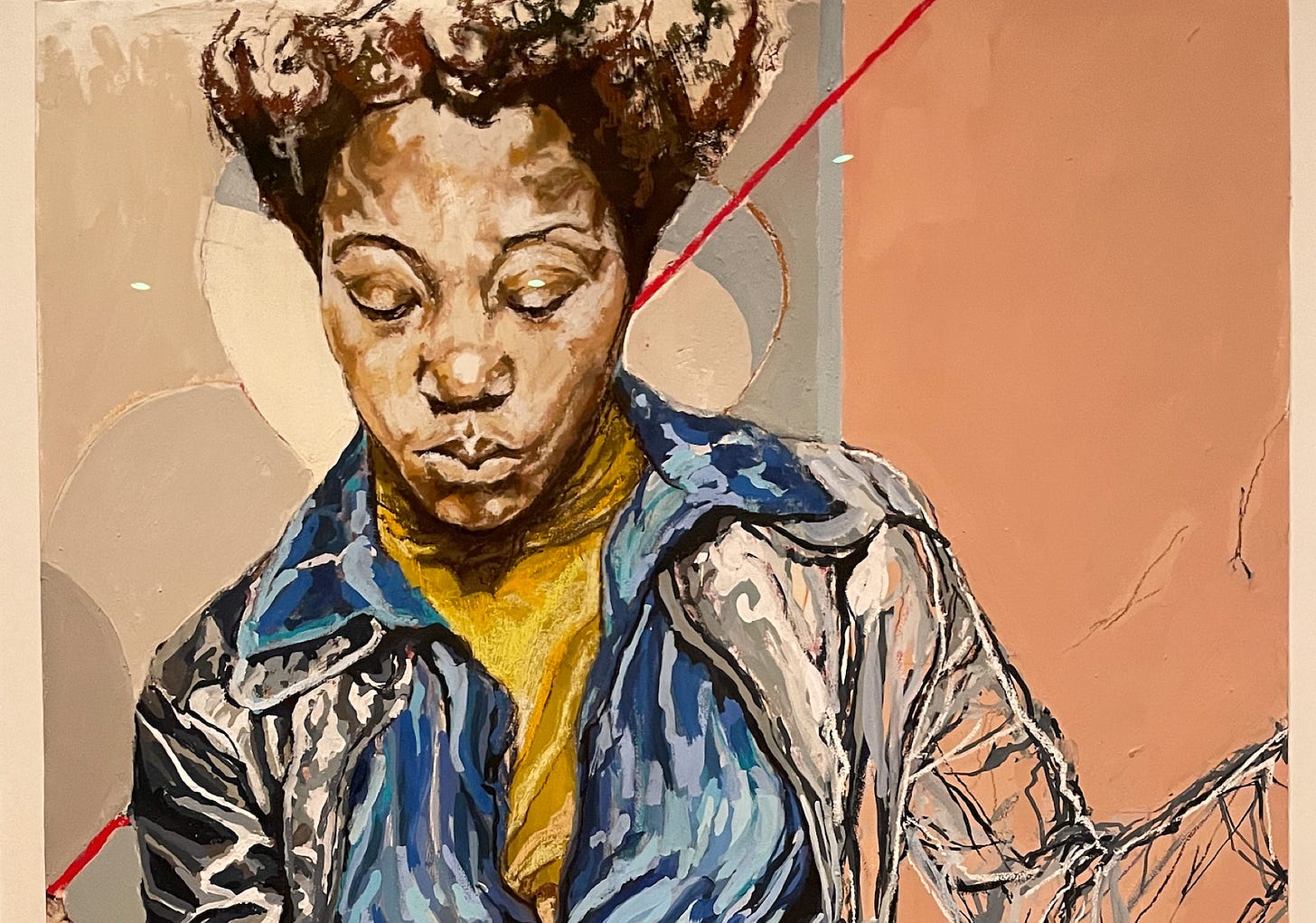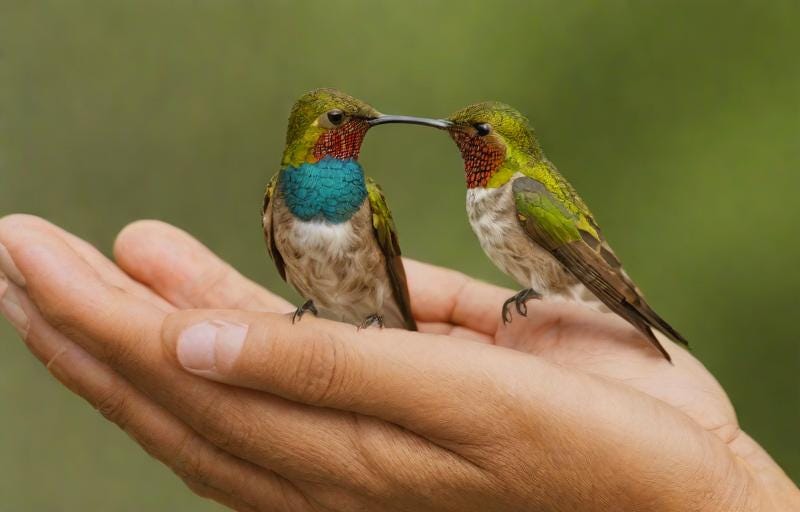
I’ve spent this week riding a rollercoaster of emotions. As I write, adrenalin still courses through my veins, and I’m not quite able to get my thoughts in order. So, I’m trying something a little different. Rather than a longer piece around a single issue, I’m going to share vignettes, musings, on a few different ideas. Let me know if you like the format in the comments!
‘Every part of the narrative we’re taught about how desire works is not merely wrong, but wrongheaded’
This longer read in the Guardian by Emily Nagoski speaks to the difference between ‘spontaneous’ desire and ‘responsive’ desire. “Where spontaneous desire emerges in anticipation of pleasure, responsive desire emerges in response to pleasure.”
The article talks about this difference with respect to sex and one’s sex life in a long term relationship, but the difference between pleasure and desire got me thinking about a life in the arts.
Pleasure is stillness, savoring what’s happening in the moment. Desire is forward movement, exploring to create something that doesn’t currently exist.
Pleasure is a perception of a sensation. Desire is motivation toward a goal.
In a sense, pleasure is satisfaction and desire is dissatisfaction, because pleasure is enjoying an experience, while desire is motivation to pursue something different.
So much of a career in the arts - at least my experience in publishing, screenwriting and theater - can be in the ‘desire’ category. The motivation towards a goal, the forward movement to create something that doesn’t yet exist. Desire, as the author points out, doesn’t always feel good, it’s ‘more or less neutral’. The context makes it feel good or bad.
If you’re creating art in a context of constant uncertainty, precarity and without any support or validation, that desire curdles into something toxic, desire without pleasure.
But if you are creating in a context with safety, with community, with your needs met, then hopefully the desire is connected to pleasure, to feeling the sensation of satisfaction, perhaps even joy in your work.
‘Desire can be hope and optimism, but it can also be anxiety and fear,’ writes the author, of sexual desire. By gosh, if that doesn’t describe a writer’s life too. What does it mean to focus on the sensation of pleasure, rather than desire?
If I am to take a leaf out of Nagoski’s book, it would be by focusing on creating the context for my work to feel good. That is, to give it the space it needs, remove the pressure and expectation that scares away any creativity, and banish the notion that art will ‘come naturally’. What does that even mean? There’s nothing wrong with planning, creating the conditions for success. If anything, I am proving to myself I take this delicate pleasure that I’ve turned into a vocation, seriously, that I’m cradling its fragile wings in the palms of my hands, protecting it from the buffeting of the storm.
International Court of Justice Rulings
You probably have read the news that the ICJ has delivered its ruling on the emergency measures requested by South Africa in its genocide case against Israel over its war on the Gaza Strip. I will be honest with you, I found the proceedings difficult to follow; I have little faith in the system of international law but have not committed myself to devising an alternative solution so do not often critique too loudly. This instagram video (shared by a friend) offered cautiously positive analysis. Many who understand international law are saying this is better than what they expected, as the court affirmed there is ‘a plausible risk that Palestinians’ right to be protected from a genocide are under threat from Israel’s actions.’ What do you think?
Do you like True Crime?
I’ve been wanting to share this piece with you all for a while now, but have not found a way to shoehorn it into another edition. Well, it has found its home in this hodgepodge of a weekend newsletter. ‘Her Daughter Disappeared. That’s When the True-Crime Nightmare Began’ is the story of true crime gone wrong, although perhaps it went in the way it was always going to go.
The true crime industrial complex, which has grown rapidly over the past few years often blurs the lines between entertainment and reality. In addition to TV shows and podcasts, true crime content has become popular on social media, where anyone can post their theories about mysterious cases on platforms like Facebook and TikTok. People debate what happened — and name names of who they believe to be involved — in comments. By creating an insatiable appetite for new mysteries, it’s also made people skeptical of reasonable explanations behind tragedies like Spencer’s death and Sofia’s disappearance.
The piece chimes in theme with this review of Netflix’s American Nightmare, a true crime documentary series about a woman who ‘went through hell…and then was accused of faking it.’
What elevates this documentary above the normal schlocky true crime fare is how it makes the true crime audience complicit in the media storm in which Quinn and Huskins found themselves. But American Nightmare also has a hunger for the ghoulish details: some of the re-enactments are slowed down to make sure the viewer gets every grisly detail. At times, Quinn and other victims clearly struggle to give testimony; it is unclear why a series focused on a botched investigation needs such detailed accounts of their assaults.
I feel queasy about true crime as a genre. Bar the original Serial podcast, which I listened to in 2022 while learning to sew trousers, and watching the fictional creation of one in Only Murders in the Building, I have generally managed to avoid most of the genre’s content. I don’t think it started as a moral position but more a lack of interest, before I began to wonder about the ethics of sensationalising people’s lives during their most vulnerable moments, and the complicated profit motive that seems to underlie much of the genre’s devotion. Would it be so popular if it weren’t so lucrative? You could argue that much news today (particularly the tabloids) operates like the genre of true crime, looking for the scoop, the lie, the conspiracy, but there does seem to be something uniquely 21st century about our society’s obsession...
I’m not saying much that wasn’t said in this podcast a few years ago, which I feel only increased in relevance as the years went by. What do you think?
I love hearing from readers after each newsletter. What did this piece bring up for you? Let me know in the comments below! 👇🏾
1. Listen: Slate’s Culture Gabfest
One of my favourite podcasts of the past few years is Slate’s Culture Gabfest. They talk tv, film, books, culture - once a week, critically, enthusiastically. It’s nerdy in the best way, intelligent and thought-provoking and often makes my consumption of culture much more enjoyable. This week’s episode was a banger, and the book review recommended at the end is most definitely worth the read…
2. Read: ’s Substack
I haven’t yet gotten into the habit of recommending other Substacks, though perhaps this is the beginning of a new trend. I came across Katy’s by chance, and appreciate her unvarnished honesty and commitment to writing from within the muck, not only once one is out of it. Frankly, it’s nice to also read work from someone who left it ‘all’ behind - a big status job, a ‘successful’ career, etc. Katy has lots of great pieces to read, I started with this one.
Bonus: everyone (well, at least three people I follow) is talking about this New Yorker piece, ‘The Birth of My Daughter, the Death of My Marriage’. If you find it behind a paywall, you can read the archived version here.
3. Watch: Apple TV’s Criminal Record
I’m about halfway through Apple’s latest offering, and it’s decent for a contemporary crime drama. It feels like it’s setting up an ‘old boys’ versus ‘new girls’ dynamic within law enforcement in the UK. It’s not radical enough to not be copaganda, but I can see the writers trying to grapple with some of the challenges. In a world where the Met police is struggling for new hires though, this story feels far more fantasy than just fiction.
Is anyone watching The Morning Show, by the way?
If you want the junk food equivalent of crime dramas, I’d recommend the Harlen Coben adaptations on Netflix - Fool Me Once, Safe, etc. Won’t change your life, but great for a weekend binge!
Have you seen any good shows recently?
Thank you, as always for reading and supporting my work. Big shout out to my newest paid subscribers: Oliver and Louise! As always, I am eternally grateful. There is little stability in the life of a freelancer, so each and every paid subscription makes a tangible impact to my life. It also makes me feel like my work is valued, and appreciated! Nothing like a sprinkle of validation to boost a writer’s creativity 😄
You too can bring a smile to my dial by upgrading to a paid subscription for 1.48 a week!
If you feel like you have the capacity to support my work, do consider upgrading to a paid subscription. If you don’t have the capacity to pay but do enjoy my work, why not share the newsletter with a few friends and encourage them to subscribe?
Thank you all so much for visiting this little corner of the internet. Until next week inshallah,
Yassmin







I stumbled upon here randomly since I was researching the terms desire and pleasure - loved your thoughts!
I love this format - I already have four people in mind for three different sections and I will send it to them and hopefully have them also sign up to you Substack. I think with all that’s happening in the world, this format works best for my attention span. 😬 thanks for sharing all this.